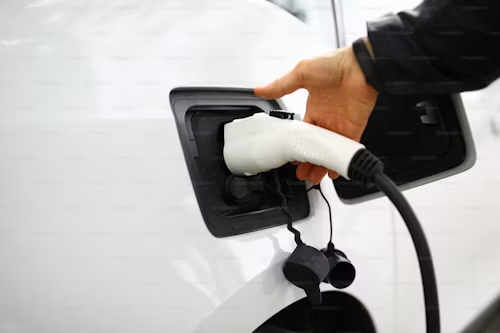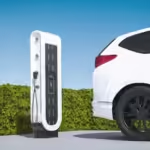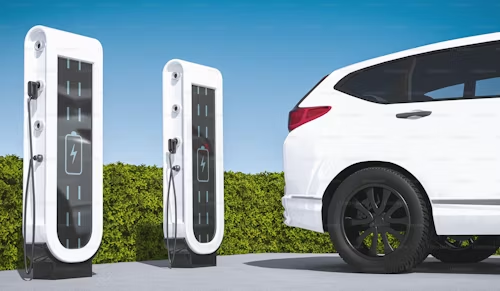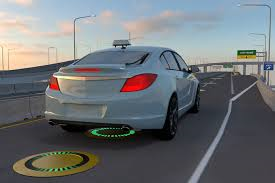HISTORY OF ELECTRIC VEHICLES
History of electric vehicles (EVs) dates back to the 19th century, with the development of early electric cars by pioneering inventors and manufacturers. These early electric vehicles laid the groundwork for the modern EV industry and contributed to the ongoing evolution of electric transportation. Several companies played significant roles in the early development and production of electric vehicles, each contributing unique innovations and advancements to the fledgling industry.
1. Thomas Parker and the London Electric Cab Company:
Thomas Parker, an English inventor and electrical engineer, is credited with building one of the first practical electric cars in the late 19th century. In 1884, Parker developed an electric carriage powered by rechargeable batteries, which he demonstrated in London, England. His invention attracted attention from investors, leading to the formation of the London Electric Cab Company in 1887.
First Ever Electric Vehicle: Parker’s electric carriage, also known as the “Parker Cell,” featured a compact electric motor mounted on the rear axle, powered by a series of rechargeable batteries. It had a range of approximately 50 miles on a single charge and could reach speeds of up to 9 miles per hour.
Where They Were Made: Parker’s electric vehicles were manufactured in Wolverhampton, England, at the Elwell-Parker Company’s factory.
Latest Edition: The London Electric Cab Company ceased production in the late 19th century, and Parker’s electric car designs were eventually supplanted by gasoline-powered vehicles. However, Parker’s contributions to electric vehicle technology laid the foundation for future advancements in the industry.
READ ALSO : Impact of Using the Wrong Engine Oil on Various Types of Engines 1

2. William Morrison and the Morrison Electric Automobile Company:
William Morrison, an American chemist and inventor, is known for building one of the first practical electric cars in the United States in the late 19th century. In 1890, Morrison constructed a two-seat electric carriage powered by a rechargeable battery pack, which he demonstrated in Des Moines, Iowa.
First Ever Electric Vehicle: Morrison’s electric carriage, also known as the “Morrison Electric,” featured a wooden chassis with a compact electric motor mounted between the rear wheels. It was powered by a series of lead-acid batteries, which provided a range of approximately 13 miles on a single charge.
Where They Were Made: Morrison’s electric vehicles were manufactured in Des Moines, Iowa, at his workshop.
Latest Edition: The Morrison Electric Automobile Company was short-lived, and Morrison’s electric car designs did not achieve widespread commercial success. However, his early experiments with electric propulsion laid the groundwork for future developments in the EV industry.
HISTORY OF ELECTRIC VEHICLES
READ ALSO : Maintaining Your Vehicle Engine To last Longer 101 best way
3. Baker Electric Motor Vehicle Company:
The Baker Electric Motor Vehicle Company, founded by Walter C. Baker in 1899, was one of the first companies to mass-produce electric vehicles in the United States. Based in Cleveland, Ohio, the company specialized in producing electric cars for urban transportation, catering to affluent customers seeking a quiet and reliable alternative to gasoline-powered vehicles.
First Ever Electric Vehicle: The Baker Electric Model I, introduced in 1899, was one of the company’s earliest electric cars. It featured a stylish design with a wooden body and leather interior, powered by a rechargeable battery pack mounted under the floor of the vehicle. The Model I had a range of approximately 50 miles on a single charge and could reach speeds of up to 20 miles per hour.
Where They Were Made: Baker Electric vehicles were manufactured in Cleveland, Ohio, at the company’s factory.
Latest Edition: The Baker Electric Motor Vehicle Company continued to produce electric vehicles throughout the early 20th century, with various models and improvements introduced over time. However, the rise of gasoline-powered automobiles and the development of the electric starter contributed to the decline of the electric vehicle market. The company ceased production in the 1910s, marking the end of an era for electric cars in the United States.
HISTORY OF ELECTRIC VEHICLES
4. Detroit Electric Vehicle Manufacturing Company:
The Detroit Electric Vehicle Manufacturing Company, founded by William C. Anderson in 1907, was one of the most successful producers of electric vehicles in the early 20th century. Based in Detroit, Michigan, the company specialized in producing luxury electric cars for affluent customers, offering a range of models with stylish designs and advanced features.
First Ever Electric Vehicle: The Detroit Electric Model A, introduced in 1907, was one of the company’s earliest electric cars. It featured a sleek and elegant design with a steel chassis and aluminum body, powered by a rechargeable battery pack mounted under the floor of the vehicle. The Model A had a range of approximately 80 miles on a single charge and could reach speeds of up to 20 miles per hour.
Where They Were Made: Detroit Electric vehicles were manufactured in Detroit, Michigan, at the company’s factory.
Latest Edition: The Detroit Electric Vehicle Manufacturing Company continued to produce electric vehicles throughout the early 20th century, with various models and improvements introduced over time. The company’s electric cars were favored by celebrities, dignitaries, and prominent figures, contributing to their popularity and success. However, the advent of mass-produced gasoline-powered automobiles and the decline of the electric vehicle market led to the company’s eventual demise in the 1930s.

The early pioneers of electric vehicles, including Thomas Parker, William Morrison, Walter C. Baker, and William C. Anderson, played crucial roles in the development and popularization of electric transportation in the late 19th and early 20th centuries. Their innovative designs and advancements laid the foundation for the modern electric vehicle industry, inspiring future generations of inventors, engineers, and manufacturers to continue pushing the boundaries of electric mobility. While the companies they founded may no longer exist today, their contributions to electric vehicle technology remain a testament to the enduring legacy of electric transportation.
HISTORY OF ELECTRIC VEHICLES
FOLLOW US ON FACEBOOK OR ON TWITTER X
JOIN OUR WHATSAPP CHANNEL FOR QUICK UPDATES











